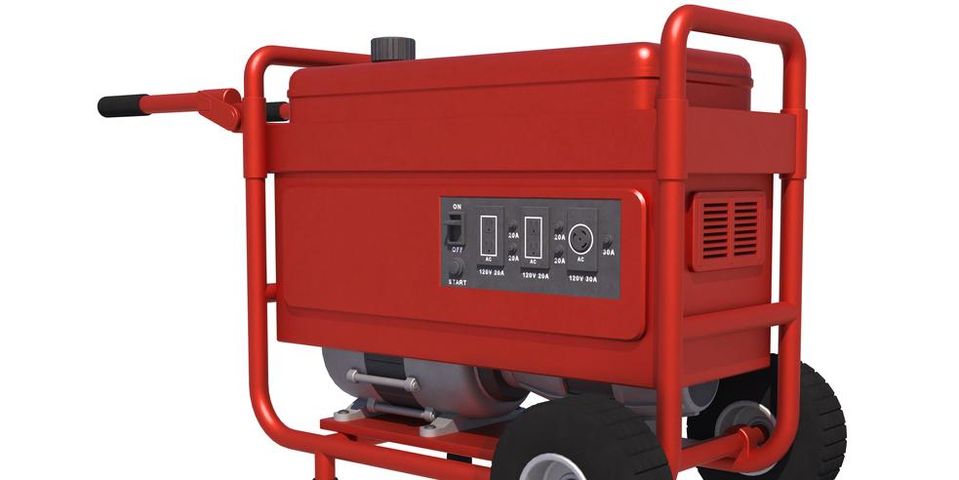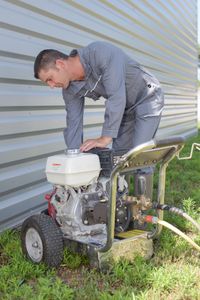5 Features to Consider Before Purchasing a Portable Generator

A portable generator offers electrical power benefits similar to that of a stationary or standby generator with the additional convenience of compact mobility. Often featuring wheels and a push handle, a portable generator can be used for emergencies such as power outages, but can also be used during a tailgate, camping, at construction sites, or other situations when portability is a necessity. The electrical contractors at Zelek Electric Co. in Old Lyme, CT, have some advice to share on which specifications to examine before buying a portable generator.
Top 5 Portable Generator Specifications to Consider
1. Voltage Capacity
 Portable generators usually aren’t suitable to run all of your household appliances at once. A small model between 3,000-4,000 watts can run up to two major appliances, while larger units of 10,000 watts or higher can run four or five appliances at one time. To choose the best portable generator for your needs, add up the total number of wattage for your appliances, tools, and all that you intend to run simultaneously. You will want to select one with a wattage level to match or exceed your usage load.
Portable generators usually aren’t suitable to run all of your household appliances at once. A small model between 3,000-4,000 watts can run up to two major appliances, while larger units of 10,000 watts or higher can run four or five appliances at one time. To choose the best portable generator for your needs, add up the total number of wattage for your appliances, tools, and all that you intend to run simultaneously. You will want to select one with a wattage level to match or exceed your usage load.
2. Fuel Type
You will need to determine which fuel type best suits your needs. Portable generators can be powered by gasoline, natural gas, propane, diesel, or solar energy. Gasoline- and propane-fueled portable units are most commonly available. Propane burns cleaner than gasoline with 40% less carbon monoxide emissions. Unlike gasoline, propane doesn’t degrade, so multiple tanks can be stored for emergencies without worrying about the fuel being compromised. In comparison, a fuel stabilizer will keep gasoline fresh and will prevent the fuel system from malfunctioning.
3. Start-Up Mechanism
How easily can you start the generator? You can choose between a pull-start that is turned on manually or a push-button with an electric start. Pull-start units are turned on in the same manner as a pull lawn mower and will require you to exert a moderate amount of energy to get it started. These can be difficult for elderly users or people with medical conditions while push-button generators require almost no effort to start—simply engage the switch.
4. Noise Level
Portable generators typically fall into the noise level range of 50 to 80 decibels with 73 to 76 decibels being the average noise level. The lower the decibels, the less noise you can expect. Less noise is always a good thing, but you will have to factor in other features and determine which are most important for your needs. A noisier model might contain more outlets or other product specs that a quieter one lacks.
5. Number of Outlets
The more power outlets the generator has, the better it can handle multiple energy applications. A portable unit with four or more outlets is able to adequately spread the electrical load.
Zelek Electric Co. has a distinguished track record of serving the greater New London area for over 30 years. Call (860) 434-9726 to speak with one of their generator repair experts and visit the website for more information on their commercial and residential electrical services.
About the Business
Have a question? Ask the experts!
Send your question

